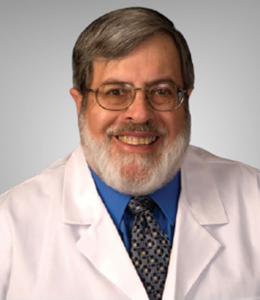Interview with Ed Capparelli, MD, TMA’s President-Elect
May 04, 2022 At the upcoming House of Delegates, Ed Capparelli, MD, will become the 168th President of the Tennessee Medical Association. Dr. Capparelli is no stranger to serving in a leadership role for TMA. He attended his first House of Delegates in 1994 and has not missed a meeting since. During that time, he has served on several TMA committees, the TMA Judicial Council, TMA’s Board of Trustees and been Speaker of the House. He has been an active participant within his local society, the Roane-Anderson County Medical Society, including several years as president.
At the upcoming House of Delegates, Ed Capparelli, MD, will become the 168th President of the Tennessee Medical Association. Dr. Capparelli is no stranger to serving in a leadership role for TMA. He attended his first House of Delegates in 1994 and has not missed a meeting since. During that time, he has served on several TMA committees, the TMA Judicial Council, TMA’s Board of Trustees and been Speaker of the House. He has been an active participant within his local society, the Roane-Anderson County Medical Society, including several years as president.
Dr. Capparelli practices as a family physician and serves as medical director for a community health center group in East Tennessee. He recently spent time discussing the future of organized medicine and outlined his priorities for his upcoming presidential term.
Talk about your leadership style and how it will translate to this role.
I have spent 30 years as a TMA member, and I have held many roles. What I look forward to most is trying to mend the divides that have crept in, such as metro vs. rural, specialty vs. primary care, or employed vs. private practice. I’d also like to help mend what Covid-19 has done to doctors. We need to emerge from this pandemic and start healing. We are a team and need to work together. The house of medicine needs to be one house. I feel I have something to offer this organization with all of my experience. The TMA is very important for the future of medicine. It needs to be a beacon of light and hope for the entire Tennessee medical community.
What are some the issues you intend to focus on during your term as president?
As president, my main focus will be physician wellness. This is not just for physicians who reach burnout, but for all physicians. Most physicians will not admit that they are depressed or hurting. We need to make help available before they reach the stage of addiction or suicide. We are coming out of a pandemic with Covid-19 that has both financially and emotionally impacted physicians. A recent bill in Washington, DC focusing on promoting mental health for health care providers and removing barriers to accessing care and treatment was recently passed overwhelmingly by both houses of Congress and signed into law. Mental wellness among physicians will benefit both the medical community and all of the people of Tennessee.
I also want to focus on lessening the burden placed on us by insurance companies. Restrictions on getting approval for treatments, advanced imaging, surgeries and medications have caused physicians a great deal of time and extra staff to get approvals to the detriment of our patients. I recently spoke with our Washington, DC congressmen and senators concerning the need to address this issue.
Why do you think physicians should be a TMA member?
There is strength in unity. When I talk to some physicians they say, “Why should I join? TMA is going to advocate for me whether I pay for it or not.” I tell them that the cost of membership is not much more than the cost of a nice evening out, but as a member you get better access to our advocacy staff and also access to legal advice, CME, and staff support. I plan to include improved access to mental health services in the coming year as well.
You attended our recent Day on the Hill. Tell us about the influence TMA has within the legislature.
It has a huge influence on our lawmakers. Legislators get bombarded from many groups with conflicting interests. If they do not hear from us, they cannot understand our issues and concerns. Covid-19 has placed a tremendous strain upon the entire healthcare industry that may not be obvious to outsiders. We need to present our situation clearly and in-person if we want those concerns addressed. Day on the Hill is a great opportunity for legislators to see us and hear what is important to us.
I have often said that if we are not sitting at the table, we are on the menu. We need our legislators working for us and not against us; they can only do that if we tell them what issues affect us.


